When I was a small girl in the Southern US, my Grandmother kept a sizable vegetable garden, a large number of chickens, a few cows, and several pigs. My memories of time in the garden and with the animals outnumber any others from those days. I befriended one of the chickens, actually a rooster, who would sit in my lap & allow me to pet him. And I helped slop the hogs many evenings, although I never got too close to them or the cows, for fear of being bitten or stepped on.
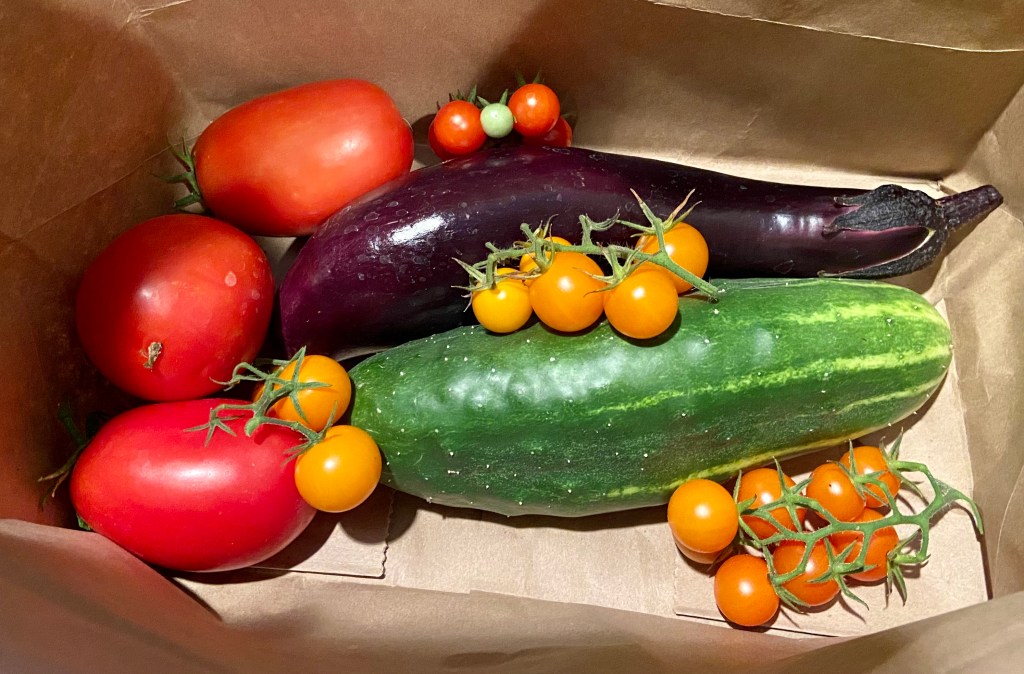
When it came time to harvest, some vegetables were canned or placed in my granny’s deep freeze, and some went to family members, neighbors, and friends. This sharing also took place when one of the animals was slaughtered. And folks were always bringing by free baskets of beans, corn, apples, berries, and jars of freshly made jam. I didn’t know I was witnessing a gift economy; that’s just the way things were done.
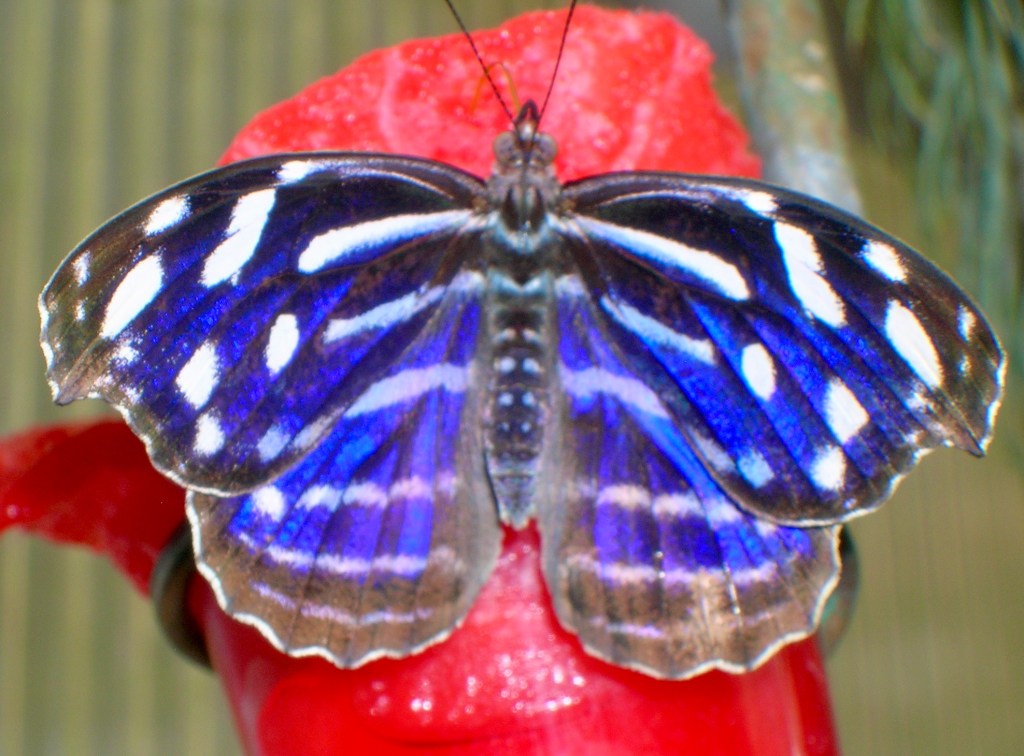
In a recent essay in Emergence Magazine, Robin Wall-Kimmerer, State University of NY Distinguished Professor of Environmental Biology and the Founder and Director of the Center for Native Peoples and the Environment, considers a similar gift economy as she’s picking Serviceberries, also called Juneberries. These unique fruits are enjoyed not only by her and her neighbors, but also many other citizens. It is a preferred browse of Deer and Moose, a vital source of early pollen for newly emerging insects, and host to a suite of butterfly larvae—like Tiger Swallowtails, Viceroys, Admirals, and Hairstreaks—and berry-feasting birds who rely on those calories in breeding season, she writes.
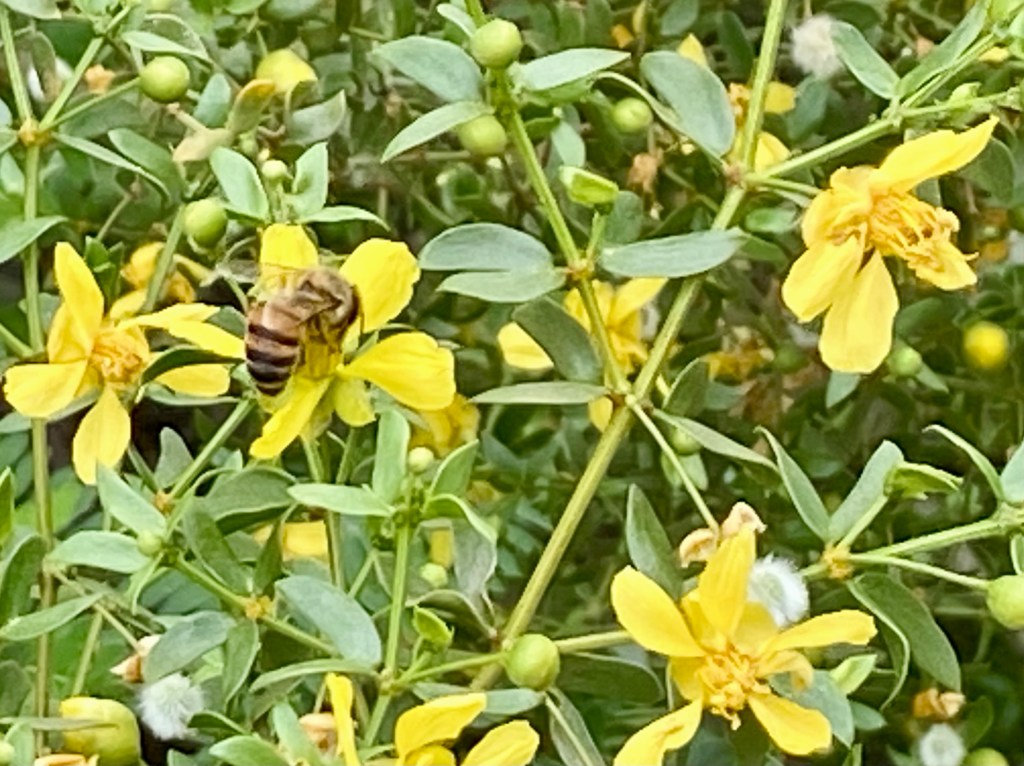
Kimmerer names the essential gifts received by the tree in return for this bounty of sweet berries, stating its economy is based upon reciprocity rather than accumulation, where wealth and security come from the quality of relationships, not from the illusion of self-sufficiency. Without gift relationships with bees and birds, Serviceberries would disappear from the planet. All flourishing is mutual, she sets forth.

Generosity is a major theme of the essay. In past posts including The Generosity of Plants and Wildflowers: Resilience, Beauty, & Grace, I have written about benefits of altruism in the plant world. And human studies show that generosity can boost immune function, reduce stress, improve mental health, and prolong life.
I am blessed to be a part of a gift economy with a small group of neighbors & friends, with whom I exchange garden veggies, nuts, farmers market picks, flowers, holiday goodies, and help with snow removal & cat sitting. They are always willing to lend a helping hand, and vice versa. But since childhood, I have seen less and less of this good-hearted reciprocity. I believe the inflation and short supply of goods and services (in the US) brought about by covid has resulted in a population consumed with thoughts of scarcity. But must fear prevent us from establishing a strong, loving community?
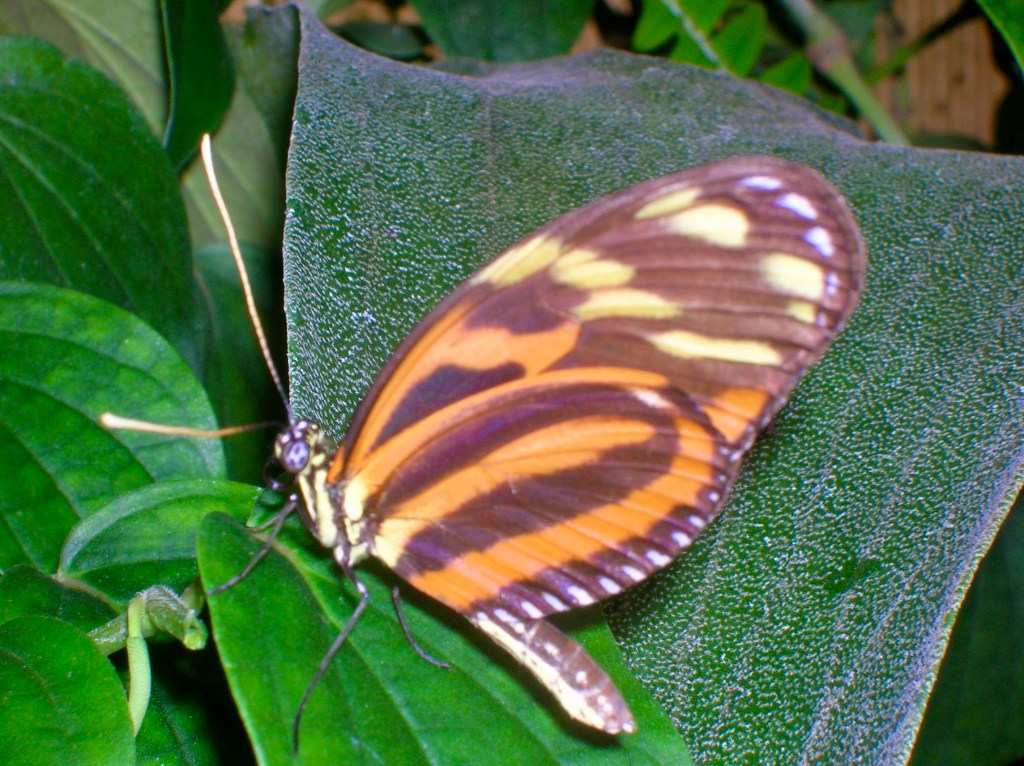
Kimmerer has the perfect antidote for this fear: naming the world as a gift. She explains: Conceiving of something as a gift changes your relationship to it in a profound way. She gives an example of a hat knitted by a beloved auntie vs. one bought at a store, saying that you’re much more likely to take better care of the hand-knitted one because it is knit of relationships. She continues, this is the power of gift thinking. I imagine if we acknowledged that everything we consume is the gift of Mother Earth, we would take better care of what we are given. To name the world as gift is to feel one’s membership in the web of reciprocity. It makes you happy—and it makes you accountable.
Reading Kimmerer’s essay makes me even more appreciative of those practices from my formative years, based on the infinitely renewable resource of kindness, which multiplies every time it is shared rather than depreciating with use, in her words. (To sample more of her writing, check out my post Does the Earth Love You?)
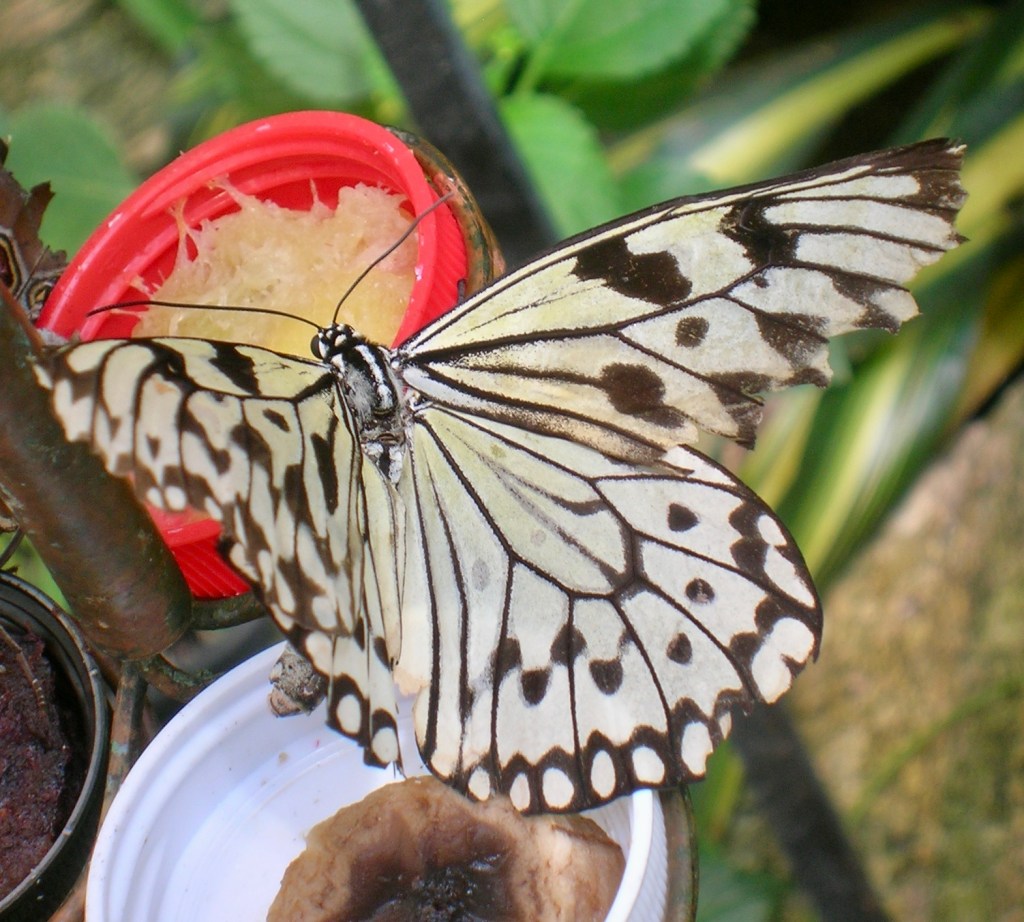
I hope your heart, like mine, has been opened by sharing in Kimmerer’s knowledge and ideas. May our inspiration and collective willingness to participate more fully in a gift economy be spurred to create a kinder world.
Blessings for Shared Abundance,
Lisa
All flourishing is mutual. ~Robin Wall-Kimmerer
The content of this article is for educational and informational purposes only, and is not intended as medical advice. Please consult with a qualified health care professional before acting on any information presented herein. Any statements about the possible health benefits of any subject discussed have not been evaluated by medical professionals or the Food & Drug Administration and are not intended to diagnose, treat, cure or prevent any disease or illness.

Sounds like a wonderful way and place to live 😍💐
LikeLiked by 1 person
Indeed, Morag. Thanks for stopping by! 🌞
LikeLiked by 1 person
The earth is a gift . All we own is a gift. The next bit is learning how to share it successfully. Thank you Lisa.
LikeLiked by 3 people
Yes, SRB&B! We are immersed within miracle, but most of us just don’t realize it! Good to see you! 🌞
LikeLiked by 1 person
Interesting read on gift economy…lovely pictures, Lisa!
LikeLiked by 1 person
I appreciate your saying so, Indira! 🌞
LikeLiked by 1 person
I like your post, and when I had lots of apples I would leave the box on the payment for people to help themselves.
Joanny
LikeLiked by 1 person
That’s a lovely way to share your abundance, Joanna! Glad you like the post! 🌞
LikeLike
My great pleasure, Lisa!
Joanna
LikeLiked by 1 person
Thank you for your lovely article. So nice to hear someone else that is looking for the positive instead of swelling on fear in our world today. My mother was another example of ‘a gift economy.’ We had a large garden, and many berry plants and fruit trees. While she canned a lot, there was no way we could use all they grew so she would pick everything as it ripened and deliver it to family and friends who could use it. Our world would be a better place today if it had more moms like her around.
LikeLiked by 2 people
You mom sounds like a lovely soul who knew the importance of showing lovingkindness. Thanks for sharing your experience, Bev! 🌞
LikeLiked by 1 person
Wonderful post! Often, when I am out in my yard, I remember the many different people who gifted me with plants. It is incredible how these plants have multiplied and grown. I have given many plants to others as well. It is kind of like a ‘healing garden’ because these plants are reminders of the healing power of kindness and generosity.
LikeLiked by 3 people
Ooooh, Linda, I love your comment! What a great perception! I’m so glad you shared! 🌞
LikeLiked by 1 person
🙂 🙂 🙂
LikeLiked by 1 person
This eased my anxiety about the greed economy. Reassuring to know that people are still kind and cooperative in this day and age. So many of us are struggling with the worldwide trend of inflation right now.
LikeLiked by 2 people
Hi, Sue, I’m glad the post could ease your anxiety. Many blessings to you. 🌞
LikeLiked by 1 person
Lisa, community is so important. Your post is a reminder that we really need connection and one way is through sharing🙂
LikeLiked by 1 person
Absolutely. Thanks again, Sue! 🌞
LikeLiked by 1 person
Love this, Lisa 🙂 We humans have been so trapped in a profit-making, monetary economy that we’ve forgotten what Robin Wall-Kimmerer brings to our attention: “All flourishing is mutual.”
LikeLiked by 1 person
Hi, Rosaliene, thank you for sharing this truth. I agree, most of us have become pawns of the powerful wealthy elite (PWE), and our lives suffer as a result. But Kimmerer is right – not even the PWE will flourish if our species becomes extinct, which is the direction in which they have us pointed, in my opinion. Thanks for dropping by! 🌞
LikeLiked by 1 person
Lisa, what a glorious post! I just love Robin Wall-Kimmerer’s writing, her words flow off the page into my whirring mind and all of a sudden, there is calm. What a gift she has! She is over 3000 miles away and from a very different background, but her voice resonates in my head and my heart. Thank you for your wonderful, sharing posts. Have a lovely weekend 👐🤗🌹🙋♂️
LikeLiked by 1 person
Hi, Ashley, I appreciate your beautiful comment. I agree, Kimmerer has a gift for writing in a way that speaks directly to the heart. If I could write like her, I probably wouldn’t do anything else! Wishing you & your beloved a joyful weekend, too! 🌞
LikeLiked by 1 person
I also meant to say thank you for the link to the RWK article The Serviceberry. As far as I can see she has only written 2 books, Braiding Sweetgrass which we already love and her first book Gathering Moss. I’m always on the lookout for more of her writing.
LikeLiked by 1 person
Oh, of course! Did you happen to notice that you can listen to her narration of the essay? Her spoken tone is just perfect for it. I read the essay twice & listened to it twice! 🌞
LikeLike
Wonderful post Lisa and such a fabulous reminder of the power of community and gift economy. It brought back memories of my childhood, growing up amid fruit trees and organic gardens, my mum sewing and making things for others, The world needs more of that giving type of living. Big hugs and much love sent to you. ❤️
LikeLiked by 1 person
Nice to see you here again, Miriam! I’m happy to hear the post resonated with your experience. Indeed, we need more of that giving type of living, to use your perfect phrase. We can all participate in some way, I believe. Sending lovingkindness your way as well! 🌞
LikeLiked by 1 person
Friends like that are a true blessing. I think sometimes these days people think they don’t have anything worth offering others when small things would be just fine. Many people don’t have gardens or skills they feel would help others.
As a Christian, I believe that God gave us the earth as both a gift and a responsibility so that means caring for and sharing. Funny story about sharing: my father-in-law loved to grow huge veggies, such as zucchini, so large that no one wanted them. 😉. And of course everyone else was growing veggies at the same time.
LikeLiked by 1 person
Hi, Janet, I’m thrilled to see you here again! I agree, I think a lot of people look at their bank balance or their monthly budget & think, “well I have nothing to share.” But sharing is about so much more than things that cost money. Indeed, the earth is a gift & responsibility that is being managed poorly. Your FIL sounds like a neighbor of mine, who is always so proud to share his huge cucumbers, but when I use them, I have to scrape out the seeds, as they’re overripe. Have a great weekend! 🌞
LikeLiked by 1 person
I was very interested to read this today, as I am reading Kimmerer’s book “Braiding Sweetgrass”. It’s such a wonderful book that speaks of many Indigenous traditions and beliefs like reciprocity. I highly recommend it if you haven’t read it.
I really do wonder why we’ve become so self-centered as a society. It’s a shame.
LikeLiked by 1 person
Yes, yes, Braiding Sweetgrass is a gem of a book. One of the links I shared within this post, “Does the Earth Love You?” is based on the book. You’re right, we all have something to share, if we’d just put some thought into it. Have a great weekend, Michelle! 🌞
LikeLiked by 1 person
I would love it if everyone everywhere had gardens and shared the crops! It is so much healthier and develops community.
LikeLiked by 1 person
Hi, Allie, I agree. But even if we don’t have a garden, we can still share something! Thanks for dropping by today! 🌞
LikeLike
Thank you for this well done post. Both of our book clubs have Braiding Sweetgrass as the book and I’m loving the treasured gifts of her words like I do yours Lisa. I can just see you sitting on your grandmother’s lap with the chickens, pigs, cows .. Your pictures are gorgeous!
💞
LikeLiked by 1 person
Cindy, hi! I am so pleased to hear you are reading her book. Her words are exactly as you say, treasured gifts! I so appreciate your ongoing support & kindness, my friend! 🌞
LikeLike
Beautiful pictures and thoughts Thanks for sharing them 🤣😎🙃
LikeLiked by 1 person
I appreciate your stopping by & saying so! 🌞
LikeLiked by 1 person
There is nothing quite like sharing food with friends, family, and those we love. There is a reciprocity in these acts, which speaks of the heart, an openness to connect on a level that fosters community and healing. I love making and sharing food with people, and to partake in their tasty creations. A lovely post to read on this beautiful fall Saturday. Happy weekend, Lisa! 🍂🌻
LikeLiked by 1 person
Oh, Jeff, even your comments are beautifully poetic! Thank you, my friend! Agreed, there is something soulful about sharing food. I love cooking for others too. I hope your weekend is filled with smiles! 🌞
LikeLike
I had no idea that we shared a background on a farm! No wonder you are so down to earth. You slopped hogs and I milked a cow and herded cattle—well, my horse did. You amaze me and I appreciate who you are.
LikeLiked by 2 people
I am humbled by your kind words, Carla. Thank you for being here! 🌞
LikeLike
Great post, Lisa. Kindness always comes from the attitude of a person. And sharing food to others is a good way to make lovely connections.
LikeLiked by 2 people
Indeed, Suni. I am glad you enjoyed the post, and I appreciate your saying so! 🌞
LikeLiked by 1 person
Beautiful post, Lisa! Lovely photos, and a heartwarming story. ❤ Too bad the gift economy is largely a thing of the past. People don't have gardens as much as they used to, and fewer people bake at home…Those were the days that gave rise to a multitude of zucchini recipes! I remember that zucchini bread was surprisingly good! 🙂
LikeLiked by 1 person
Hi, Cheryl, you’re right – it is too bad that way of life slipped away. But I believe we can bring it back. Being a good neighbor is a great start! Oh yes, I make a chocolate zucchini bread that is yummy! 🌞
LikeLiked by 1 person
Chocolate zucchini bread sounds so delicious, Lisa! You just reminded me it is time for lunch! I do have some homemade ketogenic fudge in the refrigerator. 🙂
Our neighbors were a tremendous help to us during the aftermath of Hurricane Ian! I hope you are right about bringing back neighborliness! ❤
LikeLike
Excellent, nourishing post. I didn’t know there was a term for this: gift economy is perfect. This is common in The Philippines where I come from and a language spoken and taught to us by our mother. I really hope more people discover its joys and foster communities. We need more of that.
LikeLiked by 2 people
Agreed & thank you, M&M. I appreciate you sharing your experience! 🌞
LikeLike
Such an inspiring post dear Lisa, thank you for sharing. Thank you also for sharing your beautiful childhood memories 🌸💕 I absolute love the idea and encouragement to participate more fully in a gift economy, I know this can but only create a kinder world.
LikeLiked by 2 people
Thanks for reading, Hen, and leaving your lovely comment. Indeed, we can create a kinder world by opening our hearts to others. 🌞
LikeLiked by 1 person
Gift/Sharing Economy sounds like a great definition for “Rural Living”, I think you are right, as a general society we are leaking vital fluids (generosity, apathy, caring, sharing etc.). What I can safely say is, those traits are still alive and well in the country. Great topic!
LikeLiked by 1 person
Leaking vital fluids: what a great way to explain it! I’m pleased you liked my topic. It’s always a pleasure to see you here, B.
LikeLike
What a beautiful post, Lisa. And, the concept of the gift economy is generous. Same as you, I remember whenever I visit my granny’s house in the countryside, people used to share everything there from food, resources, talks, and kindness. But as a grown-up, it feels like it all left behind. I miss those days.
But I must say Kimmerer’s thoughts have opened up a new perspective. A perspective to thank mother nature and make this world a beautiful place.
LikeLiked by 1 person
Hi, Ritish, I appreciate you sharing your experience. I felt those days were gone, too, until I moved into my current house, where neighbors started coming over to help remove our snow before we’d even met them! And then, the floodgates opened, and the sharing of hearts began. Great to see you! 🌞
LikeLiked by 1 person
I’m happy you find those days again and that was such a kind thing your neighbors did. They’re surely good people.
(We’re on short blogging break and I know we missed a lot of amazing blog post, but now we’re back)
LikeLiked by 1 person
Don’t think I didn’t miss you! 🌞
LikeLike
What a beautiful place of Natural beauty and how wonderful to be able to live in such surroundings 🙂 ❤ 🙂
LikeLiked by 1 person
Hi, Deepa, thank you! I do feel quite blessed and grateful! I appreciate your visit! 🌞
LikeLiked by 1 person
Lisa this is a beautiful concept and beautifully written post. This reframe truly has the potential to build better perspective and connection.
LikeLiked by 1 person
LaDonna! Great to see you. Your lovely comment means a lot to me. Enjoy the weekend! 🌞
LikeLiked by 1 person
I enjoy your writing and well-informed perspectives. Have a wonderful week.
LikeLiked by 1 person
🙏🙏🙏
LikeLike
My family is originally from the south (Virginia). They had their own farm, had and raised animals, made homemade soaps for others to use.
My grandmother grew her garden of cucumbers, tomatoes, green peppers and a few other things when she came to New York.
I used to go in our backyard and pick them all when they were ripe, and she would give some of her crops away for free to certain people she knew in the neighborhood.
I enjoyed reading your post. It was informative and had a great message that all could benefit from.
LikeLiked by 1 person
I appreciate you sharing your experience, misslatoya. And your kind words mean a lot! 🌞
LikeLiked by 1 person
I hope you have a wonderful day.
LikeLiked by 1 person
Likewise! 🌞
LikeLiked by 1 person
On our road trips out west, I often think of those vast cornfields and other seeds planted as nature’s way of giving back to humans amid agift economy. . I’d love to ponder this subject more in my travels.
LikeLiked by 1 person
Agreed, Nature is most generous in Her gifts to us. If only we were so magnanimous to Her. Happy pondering! 🌞
LikeLike
I kind of alluded your point about nature’s gift in my last blog. I hope you read it.
LikeLiked by 1 person
I did indeed. 🌞
LikeLike
Your pictures are indeed stunning.
LikeLiked by 1 person
Thank you for your kind remark! 🌞
LikeLiked by 1 person
Share and care! Wonderful pictures!
LikeLiked by 1 person
Share & care, indeed! I’m so pleased you enjoyed the pics! 🌞
LikeLike
superb…
LikeLiked by 1 person
Thank you for reading & commenting! 🌞
LikeLike